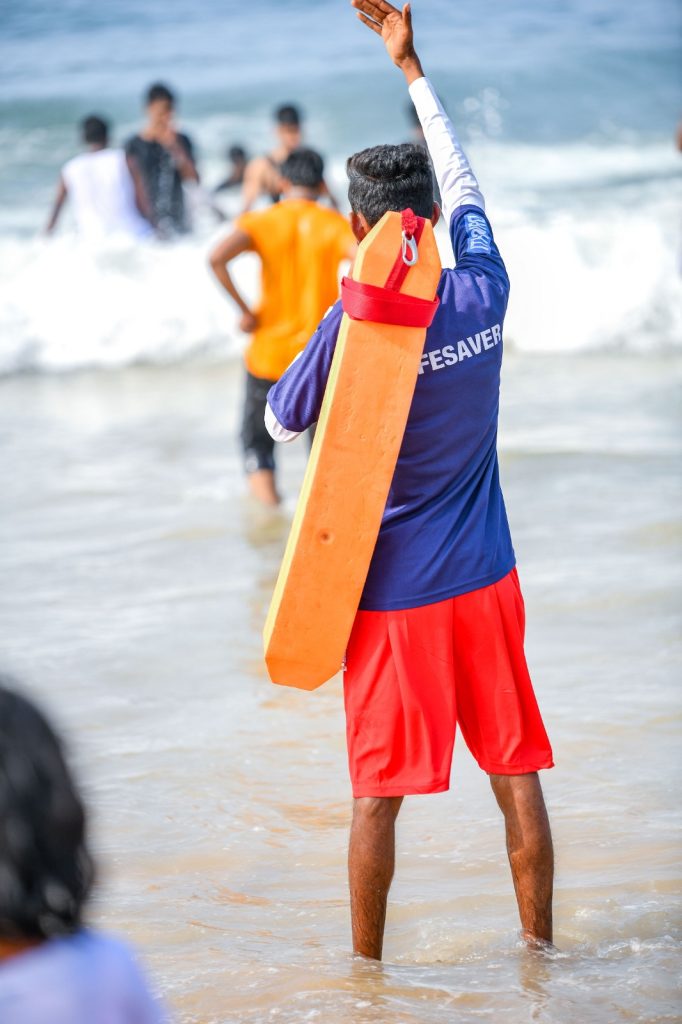The popular Calangute beach stretch topped the list of Goan beaches with the highest number of rescues by lifesavers, while more rescues were carried out by Lifesavers off Palolem beach, than any other beaches in South Goa, according to statistics released by Drishti Marine, Goa’s state government-appointed lifeguard agency.
As per the findings, 167 rescue operations were conducted in the waters off Calangute beach – the highest number in the entire state – followed by Baga with 113 rescues and Arambol with 43 rescues, followed by Morjim (29) and Vagator (24) in North Goa.
Palolem led the ranking of beaches with the most rescues in South Goa with 25 rescue operations. This was followed by Colva with 18 rescue operations and Benaulim with six rescues while Agonda and Cavelossim reported five rescues.
The statistics include only those rescue operations which were carried out off Goa coastline.
According to Drishti Marine, most of the rescues were necessitated due to two factors; alcohol consumption and unwillingness to listen to the Lifesaver’s instructions to swim within the safe zones marked on the beaches with flags. Selfies taken near rocky areas are also a major reason for such accidents, which necessitates rescue operations.

Goa being a tourist destination, visitors do tend to want to have a nice time and that often involves consuming a lot of alcohol. Drishti Marine urges visitors who have consumed alcohol to stay away from the sea. Lifesavers stationed on the beach are alert to spot potential dangerous situations. They politely request visitors who are intoxicated to not venture into the waters. Some agree and some don’t. However the Lifesavers are trained to tackle such sensitive situations on ground.
Less popular beaches accounted for the lowest number of rescues, with only two rescues being reported at Querim beach, one in Dona Paula, with Bambolim, Siridao and Vainguinim, all reporting zero rescue incidents in North Goa.
In South Goa, Cola beach reported three rescue operations, while Betalbatim, Varca and Cabo De Rama reported two rescues each.
The popular Dudhsagar waterfall has also been a location with high footfalls due to it being a tourist attraction. There have been 55 rescue operations conducted at the site which is patrolled by Drishti’s lifesavers over the course of the year.
In addition, Drishti Marine’s detailed report also identified the beaches which are most prone to hazards such as riptides and unsteady waters, which includes coastal areas in South Goa like Mormugao’s Japanese Garden, Betul, Cabo de Rama, Khola, Agonda, Colamb, Polem, and Palolem’s rocky areas. Beaches in North Goa such as Kerim, Ashwem, Sweet Lake, Vagator, Anjuna, Sinquerim, Baga and Candolim were also identified as being most prone to riptides and rough waters.
“Drishti Marine urges visitors to follow safety guidelines and to always be aware of their surroundings while enjoying Goa’s beaches. The prescribed guidelines are avoiding swimming in areas with red flags which alerts of rough and high riptides, avoiding entering in areas demarcated as non-swim zones, making sure the instructions and sign boards laid out across the beach are followed and most importantly ensuring you listen to the Lifesavers that are advising you as they are doing it keeping in mind your safety,” says Navin Awasthi, Operations Head of Drishti Marine.
Goa’s beaches attract lakhs of tourists every year. Drishti Marine’s Lifesavers work tirelessly to ensure the safety of beachgoers and tourists, with hundreds of individuals assisted to safety each year.
Other prescribed guidelines are as follows:
- Keep a very close eye on children while on the beach and do not allow children to venture into the waters unattended, no matter how shallow they may be.
- Avoid swimming in areas demarcated for water sports.
- Stay alert as lifesavers while patrolling make announcements to alarm and educate people via the Public Address System put up on the jeeps.
- Individuals with a medical problem should seek advice from Lifesavers before entering into the water.
- It is not suitable to head out to the beach or venture into the water during lightning and thunder because lightning can pose a danger.
- Do not get onto the rocks during low tide because the rocks get a lot more slippery and mossy during the monsoon season.
- Post beach closure, individuals should not venture into the sea.
- People should avoid taking selfies near rocky/slippery areas.
- If under the influence of alcohol, make sure you do not venture into the water.
- Always read and obey the safety signs found at the main entrance of the beach.



